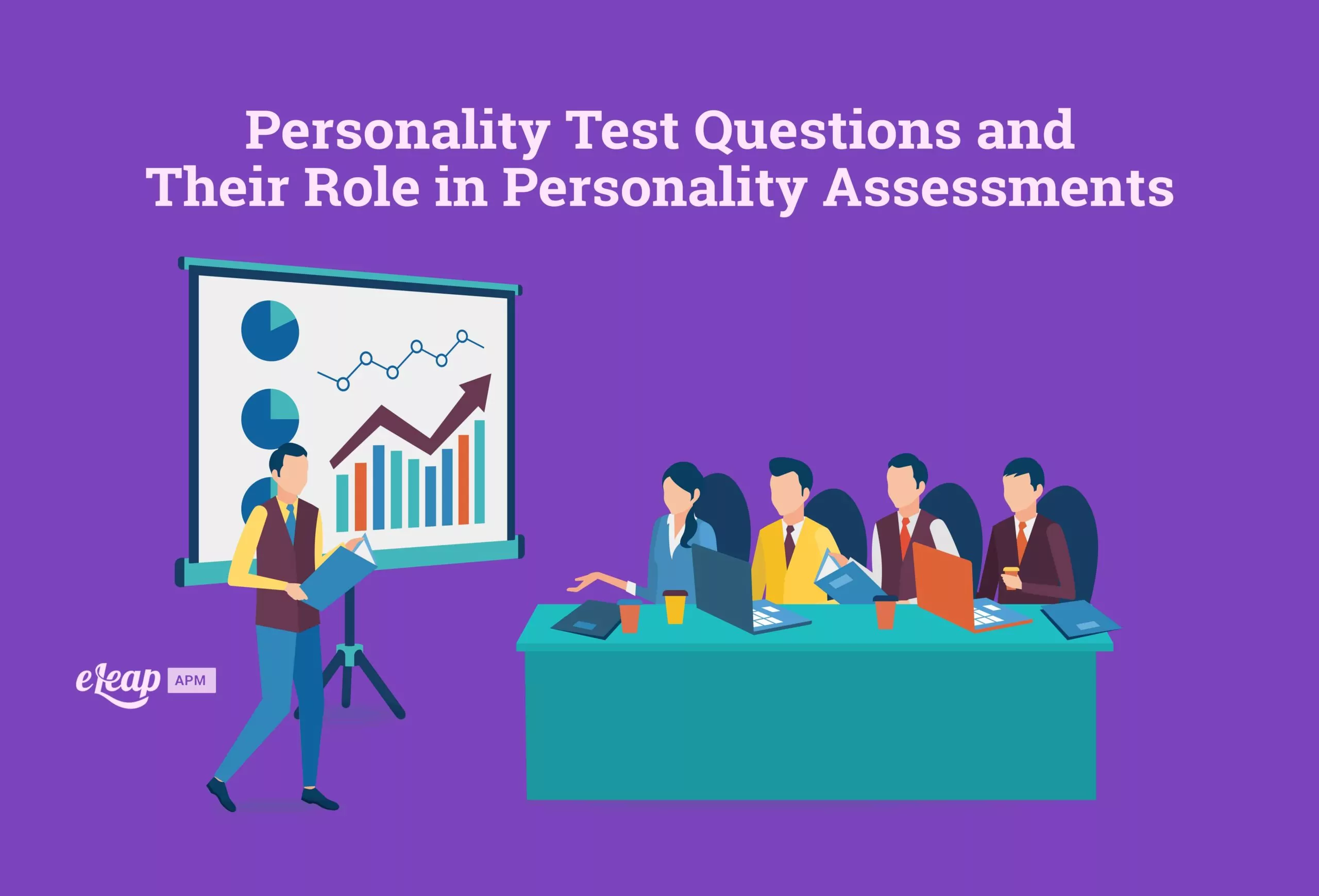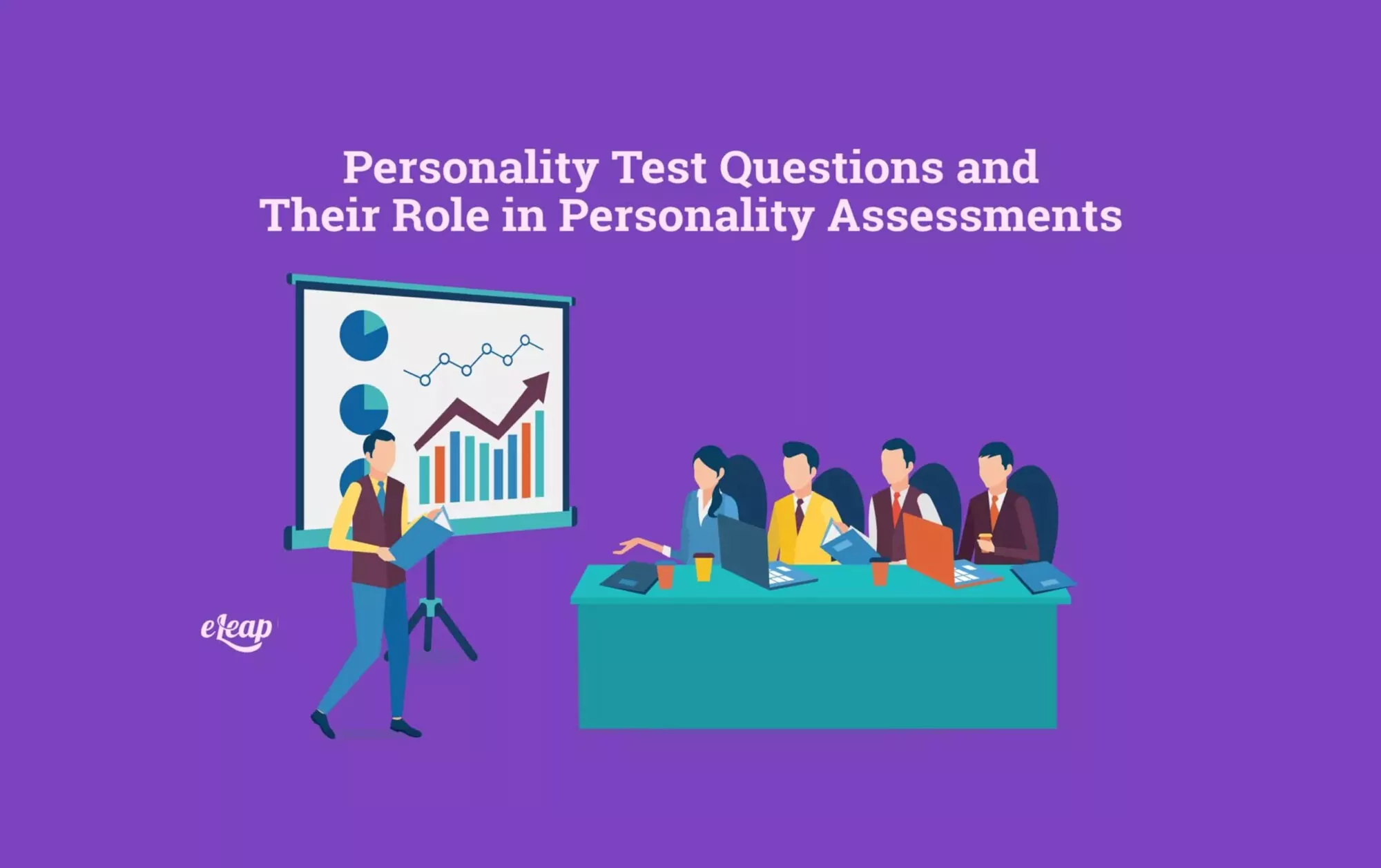Personality Test Questions and Their Role in Personality Assessments

Different types of personality tests work better for different scenarios, but the personality test questions are truly what make or break the efficacy of the test itself. When people want a deeper connection to or deeper awareness of their individual personality tendencies, they usually resort to a personality test to gain more insight into how they, themselves, think.

People believe that personality tests can spell out their likes and dislikes, how they behave in relationships and what kind of partner may be best suited to them, their strengths and weaknesses on the job, and even what sorts of scenarios or environments they perform the best in. For example, personality test questions can help to articulate whether an individual is more introverted or extroverted, if they work well under pressure, or if they perform better in a team-oriented environment as opposed to working solo. Many people struggle to define these things for themselves and believe that personality tests are the way to get clarity on their personality from an “outside” perspective, even though they answer the personality test questions themselves.
Depending on the personality test questions, personality tests may or may not be as accurate as the test taker hopes that they are. However, accurate or not, personality tests allow people to look at their own psychological and personality tendencies from another perspective which can be helpful with certain types of decision-making, even in the workplace. Many companies implement personality tests within their organization to help employees and management teams gain more insight into how they can work better together.
The Role of Industrial and Organizational Psychology
Industrial and organizational psychology, or I/O psychology, is the wheelhouse responsible for the scientific study of human behavior tendencies as they pertain to the work environment. Whether focusing on individuals, groups, or entire organizations, I/O psychology aims to provide in-depth insight into the psychological tendencies linked to workplace attitudes, career development, decision theory, human performance, and more. It is particularly useful in addressing any behavioral issues that can arise in the process of recruitment, selection and placement, training and development, performance monitoring, workplace motivation, and even consumer behavior. I/O psychologists are also usually the professionals behind personality assessments implemented in the workplace, and as such have lots of input as to what types of personality test questions are included.
What is the Purpose of a Personality Test?
The goal of a personality test is to help an individual identify tendencies towards certain behaviors or preferences characteristic of their personality. Knowing these tendencies about oneself can assist with finding the best strategies for reaching an optimal level of productivity and workplace satisfaction. Personality characteristics can make or break the success of an individual in a certain role, so identifying and defining personality traits can help people to choose careers that are best suited to their individual preferences.
Personality Test Questions – Defined
Personality test questions are the specific questions that comprise a personality test. The types of personality test questions included in each personality test will depend on the kind of information the test is designed to highlight. It’s not the questions themselves, but rather the answers they prompt that help to articulate different personality traits of the individual taking the test.
Types of Personality Test Questions
There are several types of personality test questions that can serve to customize a personality assessment toward a specific goal.
Demographic Assessment Questions
These types of questions are key aspects of any personality survey as different types of people can hold certain tendencies in favor of some personality traits. Demographic questions would include:
- What is your gender?
- What is your highest level of completed education?
- What is your ethnicity?
- What is your marital status?
- What is your employment type?
These types of questions help researchers draw connections between a certain demographic of people and certain personality traits.
Personality Evaluation Questions
These are the types of personality test questions that shed lots of light on an individual’s personality. They aren’t meant to be difficult but should cause an individual to answer from a place of genuine honesty. Personality test questions could include questions such as:
- Do you consider yourself an extrovert?
- Do you enjoy assisting others?
- What do you do when facing consequences for actions you did not do?
- When you’re upset, how long does it take you to become calm again?
- Are you frequently disappointed?
- Do you help people without the promise of reward or favors returned?
- Do you have goals for the future?
- Do you consider yourself to be easily shaken?
- Do you enjoy social events?
- Are others’ feelings important to you?
- Do you like to keep busy?
- Do you like problem-solving?
- Do you work through problems thoroughly or do you resort to the quickest solution even if it means cheating?
- Are you often overwhelmed?
- Do you enjoy stepping out of your comfort zone?
- Do you like pushing others to succeed?
- Do you give most people the benefit of the doubt in any situation?
These personality test questions are designed to help the evaluator and the individual being screened to understand the individual’s behavior, decision-making processes, and even their overall temperament. It is most common for these types of questions to be paired with a rating scale, most of which ask for a rating of 1 through 5, with 1 meaning “strongly disagree” and 5 meaning “strongly agree.”
Forced-Choice Personality Test Questions
With these types of questions, the respondent is given a list of three or four adjectives or statements. They are then asked to rank each item in the list from what applies most to them to what applies to them the least. These types of questions can be especially tricky, as sometimes the list of statements might all be desirable, or even undesirable, qualities for the job position they’re applying for or even already working in.
Open-Ended Personality Test Questions
These are the types of questions that ask for written responses in the test taker’s own words. These assessments can take more time and are consequently less common but give the respondent a chance to explain their answers. An example of an open-ended question might be, “How would your former supervisor describe your job performance?”
Gaining a deeper understanding of these personality elements in the workplace can lead to the employee getting assigned more tasks that are well-suited to their disposition, which will ultimately increase satisfaction and overall productivity.
Advice for Writing an Effective Personality Test
Personality tests should be as effective as possible, especially when being used for insight in the workplace. Personality tests used in professional settings are typically given out to understand the personalities of employees on a different level. This can hopefully lead to better employee performance which will benefit the entire organization if the personality test is well-written and effective. When writing a personality test, there are a few guidelines that, when followed, will help to increase the efficacy of the test.
Firstly, always ask unbiased questions. The personality test questions should not be designed to influence the respondent toward a certain type of answer. If the questions do this, you will not be getting accurate results. Questions should also be respectful and any questions that could be perceived as a personal attack or insult should not be included in the personality test.
The answer options must also be consistent for everyone that takes the test, especially when seeking to identify patterns of personality traits within an organization. If answer options are not consistent, the respondent may be confused by the discrepancy and the results will not be as accurate.
All personality test questions should also be optional. Taking a personality test can sometimes make an individual feel very vulnerable, and some questions could be triggering. Give the test-takers some flexibility to discern whether they’d prefer to skip certain questions and they’ll be more likely to continue participating when possible.
Personality tests should be relatively short. Tests that are too long will result in the respondents losing interest, getting distracted, and providing answers that aren’t fully accurate as they complete the test. To increase completion rates, keep the test questions to a manageable number.
Conclusion
Personality tests are great tools for helping leadership teams in an organization get familiar with the types of personality-related benefits their team members can bring to an organization. Personality test questions also help the individual respondents to have a better understanding of their personalities so that they can better relate them to their role in the workplace. Participating in a personality test can be a vulnerable, though extremely clarifying experience, with many people benefiting from having a better understanding of their own personalities and using that increased understanding to their advantage in the workplace by using their strongest traits to benefit their teams.